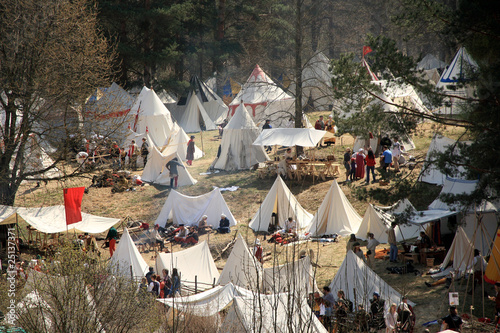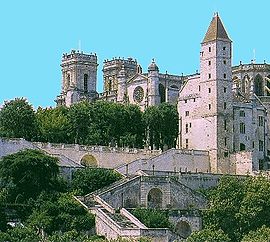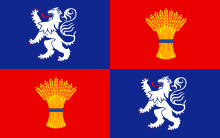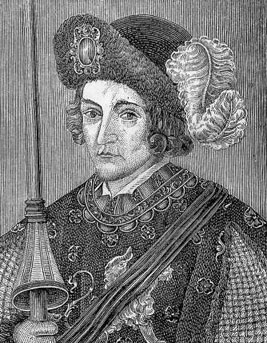 |
| Jean I, Count of Armagnac |
Axioms
- Count of Armagnac
- Castle in the fortress of Auch
- Fiefdom in Quercy
- Fiefdom of Rouergue
- Fiefdom of Gerivan
- Experience field commander
- Royal Lieutenant of South-West France
- underfunded by the King of France
This website is the main site for an operational level wargame set during the 100 years war.
 |
| Jean I, Count of Armagnac |
 |
| King Jean II "The Good" |
 |
| What medieval armies can do best. |
 |
| Resting with your 10,000 best friends and no running water. |
 |
| Sieges, the worst way to spend time in the field. |
 |
| Sign your name here and I'll give you a shiny helmet. |
 |
| Alright, the metal bit at the end goes into Englishmen's vital organs. |
 |
| Lordship of Quercy |
 |
| Montauban |
 |
| Coat of Arm of Toulouse |
 |
| Agen, so cool with its bridge and all. |
 |
| Auch, Capital of Armagnac |
 |
| Flag of Gascony |
State
|
Status
|
Supplies
|
| Order of Battle
Archers: ~2000 men (11)
Spearmen: ~1000 men (10) Knights : ~8000 (13) Overall : ~ 13K (13) Horses : Location Atlantic, transit. Activity Sea ferry. Skill levels Maneuver : untrained Operations : untrained Melee : untrained Human Factors Discipline : Disfunctional (riots). Loyalty : strong (archers, spearmen), devout (knights). | Glad to leave Plymouth. The chosen few selected to embark. Eager to get rich, quick. | food: low fodder: suitable wine: very low Weapons : suitable bows, strings: high Armor : suitable Funds : suitable |
 |
| An evening in Plymouth with 10,000 of your closest sober friends. |
Mobilization outlook
 |
| Edward of Woodstock, enjoying a shaved face for the last time in a long long while. |
Mobilization outlook
State
|
Status
|
Supplies
|
| Order of Battle
Speamen : ~1000 men (10)
Nobility : ~100 men (7)
Location
Plymouth, billet Activity Assembling, training Skill levels Maneuver : untrained Operations : untrained Melee : trained Discipline : suitable Funds : low | Secured early billet in town. Training maneuvers. Policing for the Prince of Wales. Hated by English soldiers. Breaking up/fueling Street brawls. | Using the Prince of Wales stores for victuals, wine and fodder. Weapons : low Armor : low |
 |
| Gronou ap Griffith, leader of the Welsh spearmen bound to Aquitaine. |
 |
| Few artwork depicting navy ship from the 14th century has survived. This is a painting of the battle of Sluys, 1340. |
The response from the shires is extremely positive. We should meet or exceed our targets in archers, knights and their retinues of men-at-arms. The tower of London is filled to the brim with grosses of arrows and spindles of strings as well as bow sticks. We are, however, unable to source enough horses, either destriers, palfreys or sumpters, from the coastal areas. We are going to scour the hinterland, but the price to get them to Plymouth will be greater. This is the same story with all kinds of victuals. This isn't a problem because we are running a surplus for now. However, if we don't provision Plymouth and find enough billeting space, we are going to have a troop morale problem.
More worrisome is the poor reports from the King's agents recruiting merchant shipping into the navy. The prediction are that we may not be able to ferry everyone. We may have to allow some of the men to purchase their horses in France from the base in Bordeaux. Prioritizing horses from the Nobility is also an option, although a foot-borne body of archers would make us very slow.
 |
| The Open-Ended Machine : Treating narrative gaming like a fractal. |
 |
| Sir John Griffyn in the background. |
 |
| Welsh Spearmen are classed as Irregular Auxiliary (Special) in the DBM system. |
 |
| The tower of London, today. |
Location
London's Tower, Residence
|
Status
Indebted, Resting.
|
The King of England is mandating the Prince of Wales to assemble an expeditionary forces drawn form his estate and from arrayed spearmen from Wales. All knights and man-at-arm of the land are called to join the armed force to resume the war against the King of France. The Prince of Wales has all authority to lead the expedition, establish discipline and reward men of valors. He also has the authority to negotiate treaties considered pertinent to the campaign, including surrenders of his own forces. If the Prince of Wales finds himself in need of help, the King of England is committing to provide the promptest help possible. The expedition is to assemble in Bordeaux to link with the Gascon nobles that have requested the King of England's support.
This is June 1 1355. The mobilization plan aims to assemble 10,000 men, roughly equally distributed between knights, men-at-arms and archers on horseback. It also calls for over 1000 welsh spearmen on foot in support. It will take 2 months to assemble in Plymouth while a navy is commandeered and ships are staffed and retrofitted. The sea should be favourable in early September for the 12 days voyage to Bordeaux.
The Prince of Wales should be aware that there are three significant issues that can complicate the plans. The most important is that in order to array archers and recruit nobles, we need a lot of coins. Our funds are currently low, but we are expecting to have cash from creditors within two weeks. If these funds are not released, this will cause a serious setback to our plans. The king should also release funds within the month. Finally, a steady income from special war taxes should become significant before we sail to France. The second concern is that it is always unlikely that we will be able to commandeer enough shipping to ferry all of the horses to France. We will monitor the progress of this operation closely. The third traditional concern is to maintain discipline at the embarkation port where the troops will be billeted. Let's hope that we can sail promptly before we run out of food, fodder, or coins to keep the troops from marauding our own towns and villages.
 |
| Longbowmen of olde, circa 1415 |
| The Black Prince |